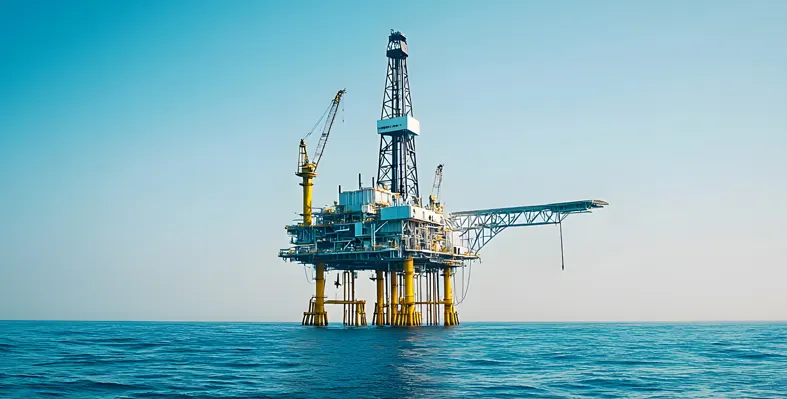

Egypt is set to enhance its natural gas production with the operation of a major new well, Zohr-6, in the Zohr field, located offshore in the Mediterranean Sea.
The details of this project were given to Al Arabiya Business by an Egyptian government employee.
According to Al Arabiya Business, this well is projected to yield 40 to 50 million cubic feet of gas daily, contributing significantly to Egypt’s energy needs.
The initiative, led by the Egyptian Ministry of Petroleum and Mineral Resources in collaboration with Italy’s Eni through their joint venture Petrobel, aims to address rising domestic demand, particularly for electricity and industrial sectors.
To ensure efficient production, Eni is implementing advanced water management techniques at Zohr-6, including chemical injections to prevent water leakage during gas extraction.
These efforts are part of broader operations to maintain the field’s output, which currently accounts for 1.1 to 1.2 billion cubic feet per day, which is approximately 30% of Egypt’s total gas production.
The Ministry’s strategic focus on the Zohr field includes ongoing investments, with US$13.5bn already allocated out of a US$39bn partnership with Eni since the field’s development began.
In early 2025, the arrival of a drilling vessel signaled intensified efforts to expand Zohr’s capacity.
Recent drilling and evaluation of 16 wells in Egypt’s Mediterranean concessions between July 2024 and May 2025 led to five new gas discoveries, promising a medium-term boost to national production.
Additionally, a US$120mn contract awarded to National United Petroleum Services Company (NESR) in March 2025 supports well maintenance through specialized chemical supplies.
Egypt’s gas strategy also addresses a production-consumption gap, with the government securing over 1.6 billion cubic feet per day through pipelines and LNG imports to meet 25-30% of the shortfall.
The Zohr-6 well’s activation in June 2025 marks a critical step in reducing this dependency and strengthening Egypt’s energy security.
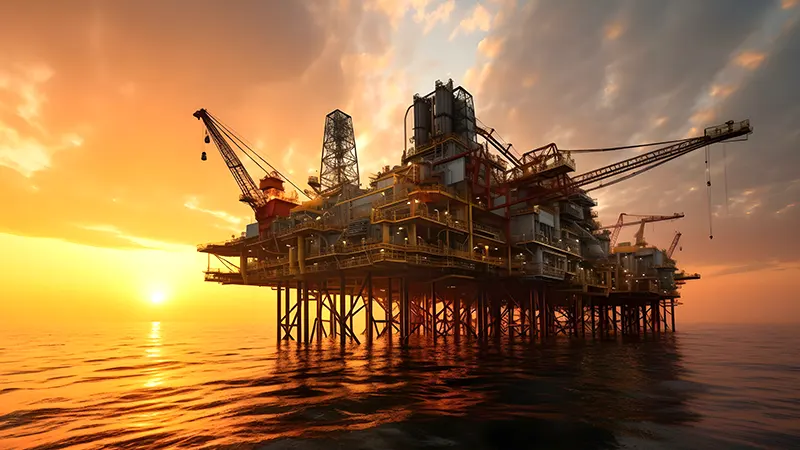

In March 2008, Libya produced 1.75 million barrels of oil per day (bpd). Since then, thanks to political instability, it has never reached that figure again. Will 2025 be the year Libya goes back to its peak crude oil production?
The country is the richest in terms of oil reserves in Africa, and its offshore oil and gas sector is a cornerstone of its energy industry.
In the last few years, some significant developments have begun to shape the Libyan oil market, which could signal positive news for the industry.
Recent developments in offshore fields like Bouri, Bahr Essalam, Sabratha, and Al Jurf, alongside new exploration initiatives, highlight Libya’s efforts to bolster offshore production through well intervention and infrastructure upgrades.
In fact, in December last year, Libya produced 1.4 million bpd, which is its best performing figure since 2013. The country has ambitions to reach 1.6 million bpd by year end.
A key development is the February resumption of gas production at Well CC18 in the Bahr Essalam offshore field, operated by Mellitah Oil and Gas (a joint venture between Libya’s National Oil Corporation (NOC) and Eni).
This restart likely involved well interventions such as coiled tubing or acid stimulation to address reservoir issues like scale buildup, ensuring consistent gas flow to the Mellitah treatment plant for domestic and European markets.
Similarly, the Sabratha Compression Project, in its execution phase with startup planned for late 2025, aims to enhance gas production.
Compression projects often require interventions like gas-lift optimisation to maintain well productivity, underscoring the role of advanced techniques in Libya’s offshore strategy.
The Bouri Gas Utilisation Project, another significant initiative, focuses on increasing gas output from the Bouri field, one of Libya’s largest offshore assets.
Operated by Eni and NOC, this project involves installing equipment to optimise production, likely supported by interventions such as perforating or chemical treatments to counter declining reservoir pressure.
Eni’s Structures A&E Project, with drilling set for mid-2025, channels gas from two offshore fields to Mellitah.
This project, involving new platforms and subsea infrastructure, will likely require well interventions like hydraulic fracturing to optimise new wells and ensure long-term productivity.
The adoption of AI-driven technologies by Eni suggests potential advancements in intervention efficiency, such as real-time monitoring to guide coiled tubing or wireline operations.
In January 2025, NOC launched its first exploration bid round in 17 years, offering 22 onshore and offshore blocks, including areas in the offshore Sirte Basin.
This initiative, attracting interest from companies like Repsol and BP, signals future offshore development.
New wells will eventually require interventions like well testing or stimulation to bring them online efficiently, building on Libya’s estimated 48 billion barrels of oil reserves, much of which lies offshore.
However, political instability poses significant risks. Only last month, Libya’s eastern-based government threatened a force majeure on oil fields and ports, following attacks on NOC facilities.
This echoed a 2024 shutdown that halted 700,000 bpd, impacting offshore fields like Al Jurf.
Such disruptions necessitate well interventions to restore production post-shutdown, as seen in Al Jurf’s history of workovers after prolonged closures.
Despite these challenges, Libya’s US$3–4bn investment plan for 2025 prioritises offshore infrastructure and interventions to achieve its production targets, reinforcing the sector’s critical role in the nation’s energy landscape.
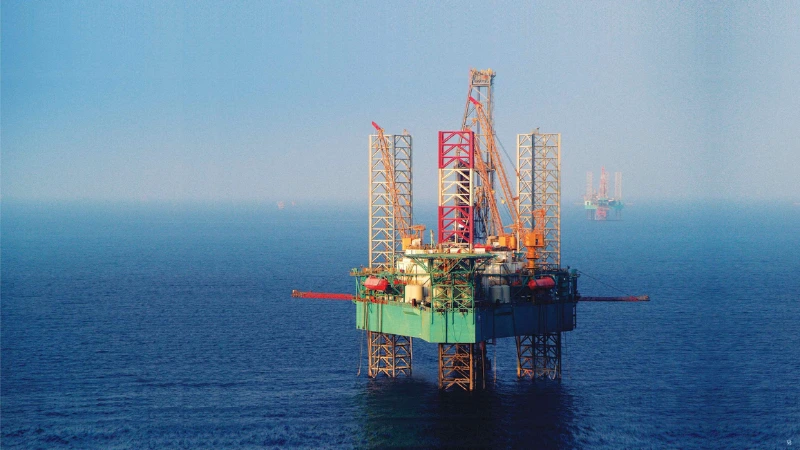

ADNOC Drilling Company has announced the award of a US$1.15bn contract from ADNOC Offshore for the provision of two jack-up rigs over a 15-year period, supporting the continued expansion of ADNOC’s offshore operations.
The contract builds on existing agreements and is expected to generate long-term revenue with attractive returns.
With a fleet of 47 offshore rigs, ADNOC Drilling operates one of the largest offshore drilling fleets globally, offering high levels of flexibility and reliability to meet growing demand while maintaining operational excellence and safety standards.
The newly contracted rigs are the latest generation of jack-ups and have been prepared for deployment at the Lamprell shipyard in Sharjah.
The project aligns with ADNOC Drilling’s focus on delivering high-quality solutions while maximising In-Country Value, supporting local partnerships, and advancing the UAE’s economic growth through homegrown innovation.
The rigs will feature advanced digitalisation, AI, and real-time data analytics to enhance safety, efficiency, and operational uptime.
Operations are expected to begin around the end of Q2 2025, with revenue contributions starting in the second half of the year.
The deal reinforces ADNOC Drilling’s medium-term outlook and underpins its strategy for stable, sustainable growth.
Abdulrahman Abdulla Al Seiari, ADNOC Drilling CEO, said, “This new contract is a clear vote of confidence in ADNOC Drilling’s technical leadership, operational excellence and long-term value creation. By integrating artificial intelligence (AI), automation and digitalisation capabilities, the two new jack-up rigs, our newest and most advanced jack-up rigs, will ensure superior efficiency and performance for our client ADNOC Offshore.
"With this contract securing operations until 2040 and beyond, and providing strong, resilient and predictable returns, we are not only reinforcing our role in achieving ADNOC’s production capacity milestones but also driving sustainable long-term growth for our shareholders.”
Tayba Abdul Rahim Al Hashemi, chief executive officer of ADNOC Offshore, said, “In the past month, ADNOC Offshore has awarded long-term contracts worth c. US$3.6bn to ADNOC Drilling to safely accelerate our production capacity growth plans. ADNOC Drilling’s advanced fleet of jack-up and island rigs, market leading integrated drilling services and cutting-edge technologies are critical enablers to deliver ADNOC’s ambitious strategy. This partnership will help us to sustainably meet the world’s growing energy demands and maximise value for shareholders for decades to come.”
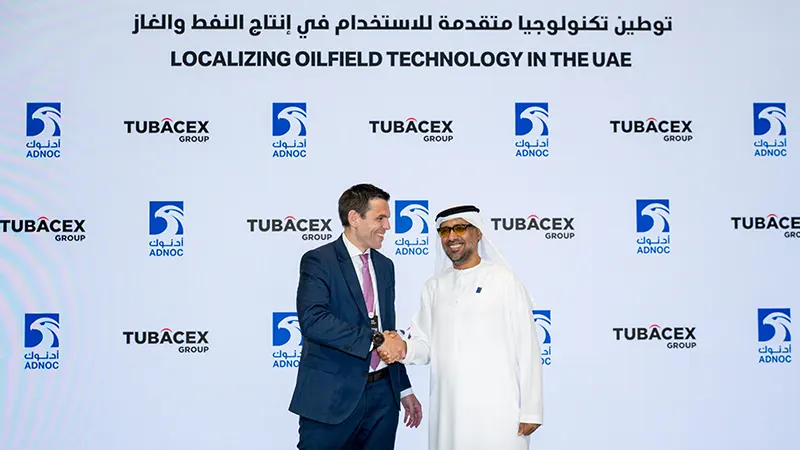
 United Arab Emirates' industral base, ADNOC, has signed a strategic partnership agreement with advanced tubular solutions provider, Tubacex, to localise critical oilfield technology.
United Arab Emirates' industral base, ADNOC, has signed a strategic partnership agreement with advanced tubular solutions provider, Tubacex, to localise critical oilfield technology.
This will ensure cost reduction and supply chain resilience for ADNOC as it leverages Tubacex’s Sentinel Prime premium tubular joint connection technology for well completion operations.
Also defined as oil country tubular goods (OCTG), tubulars are steel pipes specially made for drilling and completion activities. These components must meet stringent standards for strength, durability and reliability to operate in high-pressure, high-temperature environments deep underground.
A dedicated research and development (R&D) centre will be established as a hub for advanced engineering by Tubacex in Abu Dhabi. It will advance local content by training highly skilled technicians in-country.
Musabbeh Al Kaabi, ADNOC Upstream CEO, said, "This strategic partnership secures ADNOC access to an important technology for completing oil and gas wells, reinforcing our role as a reliable global energy provider and our efforts to boost domestic manufacturing capacity. We welcome Tubacex’s investment in a new research and development center in Abu Dhabi which will enable knowledge and technology transfer, help develop local talent and support the goals of the Make it in the Emirates initiative.”
Josu Imaz, Tubacex Group CEO, said: “The licensing arrangement with ADNOC confirms Tubacex’s commitment to innovation and excellence in the energy sector and reinforces our position as a strategic contributor for major players in the industry.”
Click here to register for Offshore Network's international well intervention and decommissioning conferences.
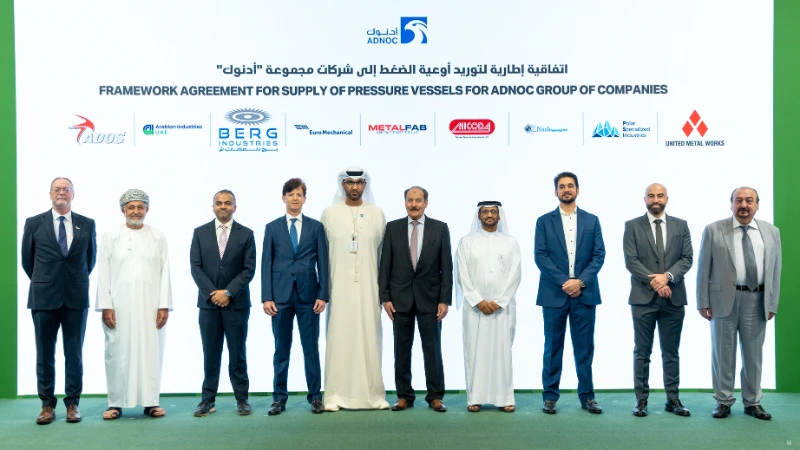

The Abu Dhabi National Oil Company (ADNOC), the UAE’s largest offshore oil and gas producer, is revolutionising its offshore operations by prioritising locally-manufactured products, aligning with the “Make it in the Emirates” initiative.
ADNOC produces 4.85 barrels of oil per day, accounting for half of Abu Dhabi’s oil production capacity. This includes its nine offshore fields.
The company's push for local sourcing enhances efficiency, reduces supply chain risks, and supports the UAE’s economic diversification, as highlighted at the 2025 Make it in the Emirates forum (MIITE), which took place from 19-22 May this year.
ADNOC Logistics & Services (ADNOC L&S) is leading this transformation, deploying UAE-built offshore support vessels (OSVs) equipped with smart digital systems for real-time monitoring.
At MIITE, Capt. Mohamed Al Ali, SVP Offshore Logistics, emphasised these vessels’ role in optimising logistics for offshore fields, showcasing Emirati expertise and the role ADNOC is playing in enhancing Emiratisation.
In 2024, ADNOC L&S also acquired six flat-top cargo barges from Dubai’s Premier Marine Engineering, supporting its engineering, procurement, and construction (EPC) projects.
On the other hand, ADNOC’s partnership with Tubacex, announced on 19 May, introduces locally-developed well completion technologies at a new UAE R&D centre.
These AI-driven systems enhance subsea interventions like wireline logging and stimulation in fields such as Lower Zakum, boosting recovery rates.
Additionally, ADNOC has awarded AED543 million (US$147.8mn) in contracts to nine local suppliers for products like valves and corrosion inhibitors, which are critical for offshore well integrity.
These agreements, facilitated by ADNOC’s In-Country Value (ICV) programme, aim to localise AED90 billion (US$24.5bn) in procurement by 2030, creating 3,500 skilled jobs.
The RoboWell AI system, deployed across 10 wells at the NASR field in 2024, marks a global first for autonomous offshore well control.
Developed with AIQ, RoboWell uses cloud-based algorithms to optimise operations, reducing emissions and human supervision. Plans to expand to 300 wells underscore ADNOC’s digital leadership.
Critically, while local manufacturing strengthens resilience, reliance on foreign partners like Tubacex for advanced tech highlights a need for deeper UAE innovation.
ADNOC’s strategy, blending local production with global expertise, positions it as a pioneer in sustainable offshore operations, driving UAE’s industrial growth.
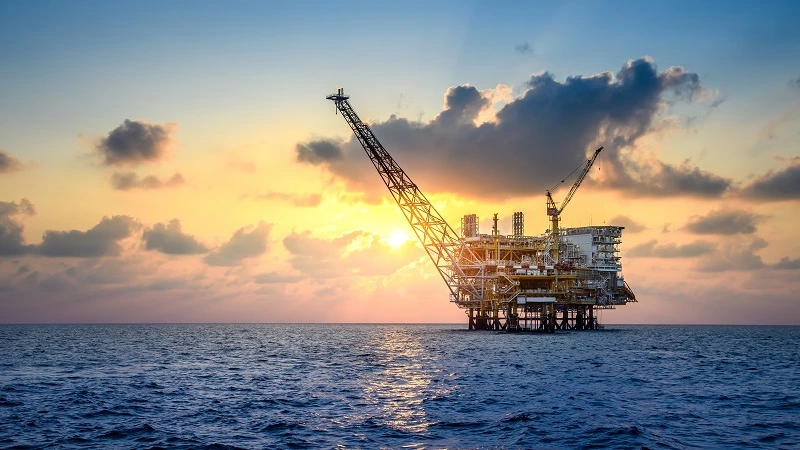

As countries, like Iraq, Oman, Syria, the UAE, and Saudi Arabia ramp up production or restore ageing fields, the demand for specialised operations to maintain, repair, or enhance oil wells is poised for decent growth.
The UAE aims to reach 5 million bpd in crude oil production capacity by 2027, requiring significant upstream development.
For this, ADNOC has partnered with SLB to deploy advanced electric completion technologies across onshore fields, starting with six electric interval control valves in the Bu Hasa field.
These technologies enhance well efficiency and reduce intervention costs, signaling a shift toward smarter, sustainable intervention methods.
Additionally, ADNOC’s US$80bn XRG investment vehicle targets low-carbon and gas projects, which could include interventions to optimise gas wells.
Saudi Aramco’s discovery of 14 new oil and gas fields in the eastern province and Empty Quarter, announced last month, includes fields like Jabu and Ayfan.
Developing these fields will likely require interventions to maximise output, such as acidising or perforations, especially in complex reservoirs.
Moreover, Saudi Arabia’s plan to increase oil production capacity from 2025 to 2027, before stabilising at 12.3 million bpd in 2028, will necessitate interventions to maintain ageing wells and optimise new ones.
Apart from this, OPEC+ plans to increase output by 411,000 bpd next month, which could mean that there will be a pressure to optimise existing wells.
Oman’s oil production is expected to surge to 775,000 bpd next month.
This demands ongoing maintenance to sustain, particularly in mature fields.
Interventions such as hydraulic fracturing and coiled tubing operations are essential to optimise well performance and extend field life.
Oman’s upstream investments signal a robust market for intervention services as the country seeks to solidify its position in global energy markets.
In Iraq, the Dhi Qar Oil Company’s recent initiative to drill 17 new wells at the Gharraf oil field reflects a push to expand production capacity.
New wells frequently require interventions like well stimulation or plugging to address declining output or mechanical issues, creating a steady pipeline of work for service providers.
In a post-Assad Syria, efforts to revive a battered oil sector are gaining traction, with the new government eyeing Azerbaijan’s expertise to rehabilitate fields in northeastern regions.
While exact numbers are unavailable, various estimates have put Syria's current oil production between 90,000 and 110,000 bpd.
This is a major fall from the 385,000 bpd reported in 2010, which could spell a need for well interventions to restore output.
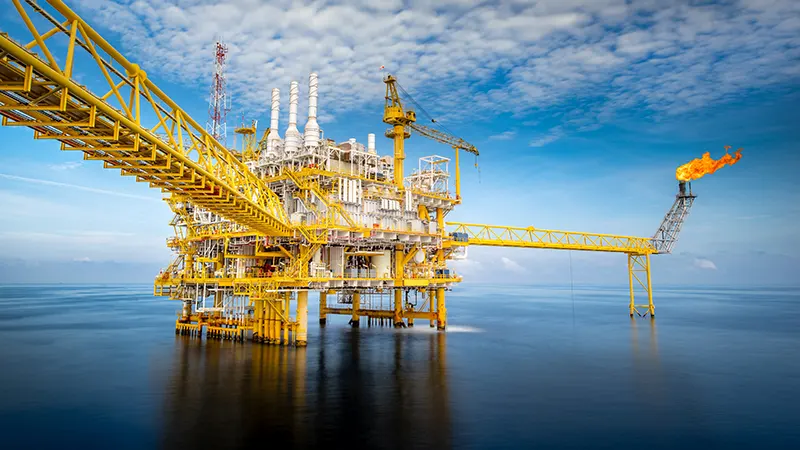
 Expro Group Holdings N.V., in its financial and operational results for the first quarter of 2025, reported notable progress in offshore well intervention operations across the Middle East and North Africa (MENA) region.
Expro Group Holdings N.V., in its financial and operational results for the first quarter of 2025, reported notable progress in offshore well intervention operations across the Middle East and North Africa (MENA) region.
The company posted US$94mn in MENA revenue for Q1 2025—a 1% increase compared to the previous quarter—supported by growth in well intervention and integrity activities in Qatar, enhanced production solutions in Algeria, and expanded Coretrax well construction work.
Significantly, Expro successfully concluded deepwater Tubular Running Services (TRS) for two exploration wells in the East Mediterranean. These operations demonstrated the company's ability to deliver reliable and efficient offshore services under complex conditions, reinforcing Expro’s reputation for safety and technical excellence in deepwater environments.
A major technology milestone in the region was the successful pilot of Expro’s QPulse multiphase flow meter in Saudi Arabia’s Jaffurah field. The system showed strong correlation with traditional test separators, validating it as a standalone, non-intrusive solution for production testing. Portable and environmentally conscious, QPulse enables real-time performance monitoring without production deferrals or safety risks, positioning it as a forward-looking tool in the company’s offshore intervention arsenal.
Segment EBITDA for MENA rose to US$34mn with a margin of 37%, up from 35% in Q4 2024, driven by improved activity mix.
This article is based on Expro’s Q1 2025 report, which outlines operational and technological advancements across multiple global regions.
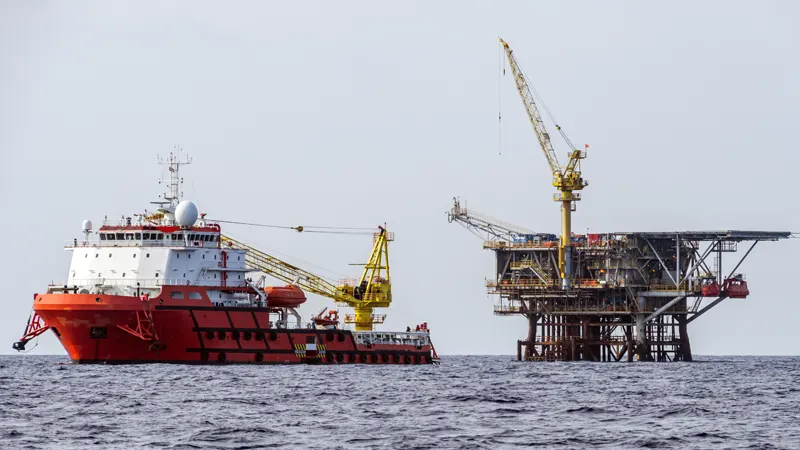
 The Gulf Cooperation Council (GCC) region that comprises the Arab countries will be welcoming a large class vessel by Gulf Marine Services (GMS), a provider of self-propelled, self-elevating support vessels to the offshore energy industry.
The Gulf Cooperation Council (GCC) region that comprises the Arab countries will be welcoming a large class vessel by Gulf Marine Services (GMS), a provider of self-propelled, self-elevating support vessels to the offshore energy industry.
This is yet another contract for GMS that will be valid for a total of 142 days, whereby the vessel will be supporting critical offshore operations in the region.
The high market demand for offshore vessels has showered the company with its fourth contract win or extension this year.
"We are thrilled to secure this contract which once again reflects the confidence our clients place in GMS to deliver reliable solutions for their projects," said Mansour Al Alami, GMS Executive Chairman.
This follows GMS' last contract win in March for an additional vessel in the Middle East by a major regional client. It spanned an initial term including extensions of seven months.
This additional vessel, sourced to meet the demands of this project, will support a range of offshore operations, leveraging its advanced capabilities to deliver tailored solutions for various projects in the region.
"This award underscores GMS’s ability to source and provide customised solutions to our clients and demonstrates our flexibility in meeting current as well as future demand," Al Alami had said.
To know more about the offshore well intervention scene in the Middle East and North Africa (MENA) region, click here.
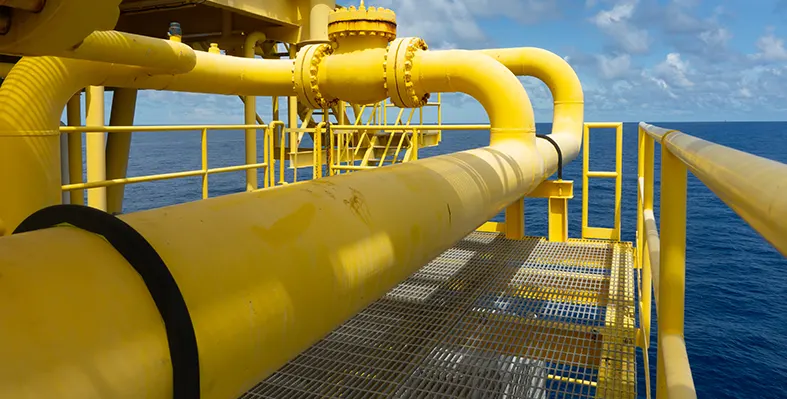
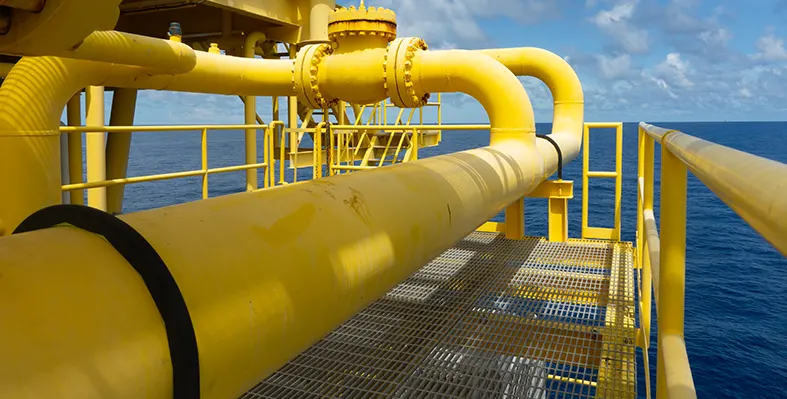 US-based oil and gas services specialist, Expro Group, is upbeat about prospects in the Middle East and North Africa (MENA) after a first deployment to the region of a well technology acquired only recently.
US-based oil and gas services specialist, Expro Group, is upbeat about prospects in the Middle East and North Africa (MENA) after a first deployment to the region of a well technology acquired only recently.
Despite a challenging environment in Saudi Arabia, the region’s main oil and gas producer, it believes its so-called Blackhawk technology holds great potential and said “additional opportunities” have presented themselves following the maiden deployment.
In the company's full year 2024 results, Expro Group said that it had, for the first time, utilised the Blackhawk Wireless Plug Dropping Cement Head with SKYHOOK in the Gulf.
“In MENA, despite recently announced curtailment of offshore activities in the Kingdom of Saudi Arabia, Expro successfully displaced conventional plug manifolds through its first deployment of Blackhawk Wireless Plug Dropping Cement Head with SKYHOOK in the Arabian Gulf.”
The technology has previously won awards for improving safety during well intervention work.In conjunction with the automated wireless cement-head, the SKYHOOK device serves to eliminate the final trip in the derrick; meaning a cement job can be performed in its entirety without ever sending a person to work at heights.
Blackhawk Specialty Tools, which developed the technology originally, was later acquired by Frank’s International, which then merged with Expro in 2021, adding specialty cementing and well intervention services and products to the group’s portfolio.In its results 2024 statement, Expro also referenced another technology, iTONG, an advanced single push button tubular make-up solution, which has likewise brought worker safety benefits.
“Like iTONG, the system creates operational efficiencies while improving safety by removing personnel from the red zone — in particular, by eliminating the need to send personnel up the derrick. The technology enables cementing with full tensile, torque and pressure capacity, alongside increased pumping and displacement rates.”
It added, “This successful deployment has resulted in additional opportunities, including planned 2025 projects aimed at addressing well integrity and zonal isolation challenges across critical offshore wells.”
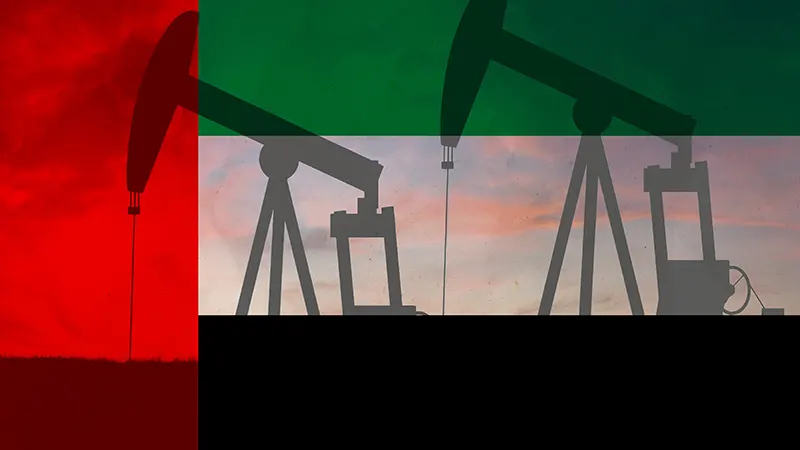
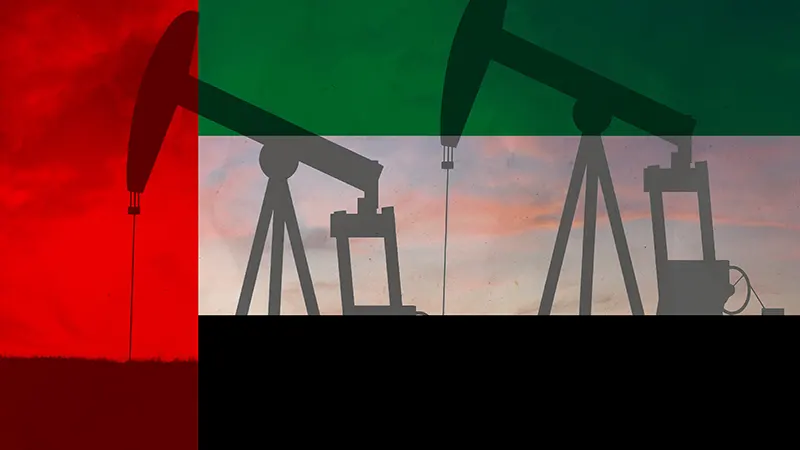 UK-based Hunting plc, which operates in the well interventions market and other areas, has outlined plans to grows its business in the Middle East.
UK-based Hunting plc, which operates in the well interventions market and other areas, has outlined plans to grows its business in the Middle East.
“Hunting is looking to build its presence in the Middle East with the construction of a small laboratory in the UAE to service clients in the Eastern Hemisphere,” it said in a statement on 7th March, 2025.
“With the establishment of this laboratory, the sample lead time and overall analysis time will decrease as a result of closer proximity to the customer.
Hunting is a leading manufacturer of precision engineered products and integrated systems for the global energy market as well as other industries.
Its product suite includes well intervention equipment, well test and process systems, connection technology, logging systems and other areas.
The statement coincided with the acquisition of Organic Oil Recovery (OOR) technology, in a deal worth US$17.5mn. Field trials of the OOR technology — designed to prolong the life of a field and lower water cut during end-of-life production — are currently underway in the Middle East and other parts of the world, the company said in the statement.
“Following the acquisition of this exciting business, Hunting now has the ability to deploy this remarkable technology globally,” said the company’s CEO, Jim Johnson.
The company also reported its full-year 2024 results on 6th March with both revenue and earnings growth “despite the volatile energy markets” of last year, Johnson added.
The Middle East remains a key area of growth, it added, given the level of tender activity across the region.
The UAE is one of a number operating sites in the group’s Europe, Middle East, Africa (EMEA) business, alongside Saudi Arabia, the UK, the Netherlands and Norway.
Its well intervention portfolio includes pressure control and slickline equipment, tubing technology, e-line tools and control and injection units.
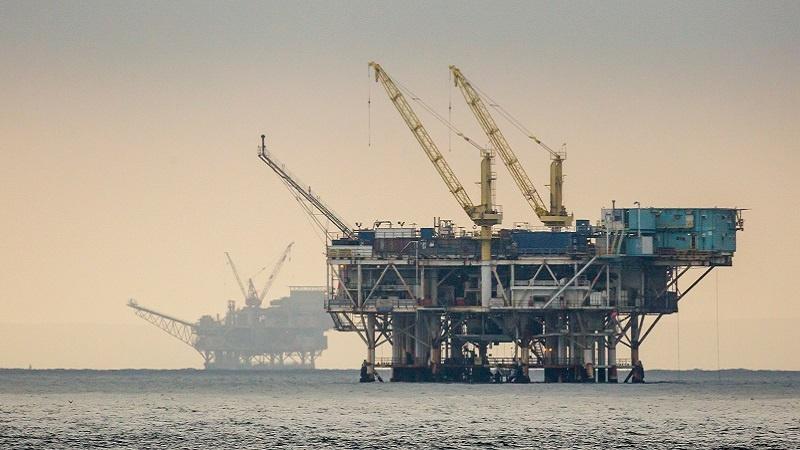
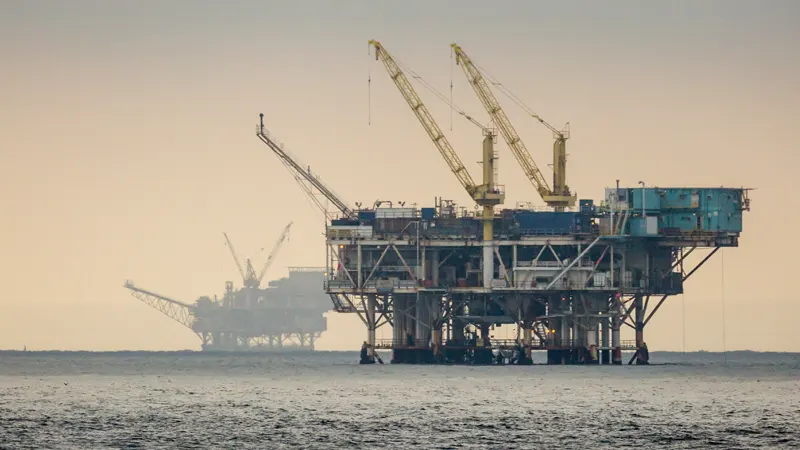 The Middle East’s intervention scene appears to have a promising future as operators seek to minimise emissions while maintaining production. An indication of such a future can be found in companies such as well integrity and production optimisation leader, Coretrax, showing increased business interest in the region.
The Middle East’s intervention scene appears to have a promising future as operators seek to minimise emissions while maintaining production. An indication of such a future can be found in companies such as well integrity and production optimisation leader, Coretrax, showing increased business interest in the region.
“The Middle East is a key growth area for Coretrax ... As operators remain focused on maximising recovery efficiently and sustainably, our expandable technology is ideally placed to support this demand," said John Fraser, Coretrax CEO, while marking the Company’s first deployment of ReLineWL straddles in 2022 for a major Saudi operator.
With the help of Coretrax’s ReLineWL that provided maximum production conduit to surface over conventional options, the well was brought back online. Not only did it bring down water production by 31%, but also enhanced oil output by 1,400 bpd. This also resulted in a significant drop in carbon footprint.
ReLineWL straddles allow maximum protection against the pollutants, elevated salt levels or impurities that are generated from produced water by isolating perforation intervals to shut off water production zones. It simplifies the huge challenge of time-consuming water treatment, which is especially worse in brownfield establishments, costing operators a fortune. ReLineWL also eliminates the storage and transportation difficulties that come with water production.
A one-trip, wireline deployed straddle system to address common well integrity issues, Coretrax’s ReLineWL also offers solutions regarding corroded or compromised tubing, such as the loss of well integrity. Enabling intelligent, non-intrusive interventions, the tool’s emission reduction capacity makes a huge difference. It omits the need for extensive workovers, and even well plugging and abandonment in extreme cases.
Speaking of a latest addition to the Company’s product line called Restore Patch, Fraser said, “Through the advancement of expandable straddles like our Restore Patch, operators can effectively reline mature or non-producing wells to deliver efficient and economical recovery. Our leading expandable technology is already delivering substantial efficiencies and we are actively seeking partnerships with conveyance providers which will allow us to make this solution even more accessible to the global energy industry.”
Restore Patch can be run across coiled tubing and drill pipe to restore well integrity and tackle common issues of water production, completion leaks and sand ingress. The system’s shoeless design makes drill out redundant, saving valuable rig time with a one-trip solution. Its slim outer diameter also allows it to bypass inner diameter restrictions such as sub-surface safety valves. At a 75% expansion ratio, it delivers maximum oil and gas production conduit to surface. With more than 700% greater flow area, the tool provides unmatchable results when compared to traditional straddles. Deploying the Restore Patch that gives all-time reservoir accessibility without major intrusions will allow operators to seamlessly plan future well operations and end-of-life activities.
This is an extract from a report by Offshore Network, which explores how the Middle East’s adoption of digital solutions is reshaping the well intervention market, highlighting a forward-thinking approach that bridges the gap between traditional energy practices and the drive for a more sustainable future. Read more on this and other reports.
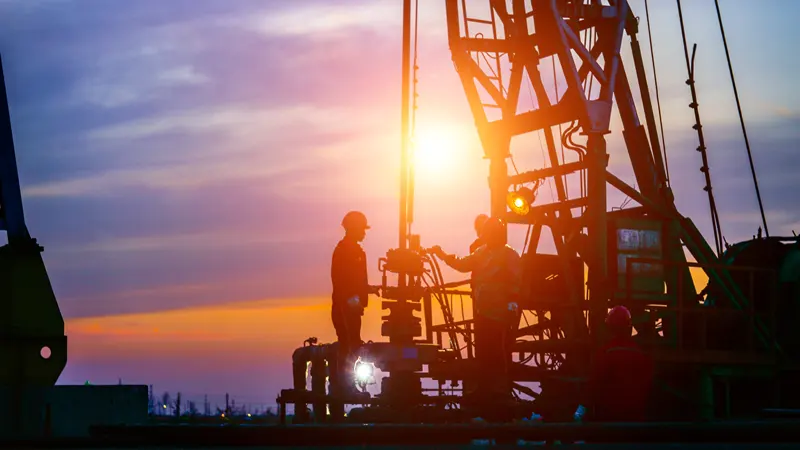
 Business is thriving for the major players serving the oil drilling and well interventions market across the Middle East and North Africa (MENA) region Halliburton, in its latest round of results, highlighted the region as integral to some of its core operating segments, including completions and production and drilling and evaluation.
Business is thriving for the major players serving the oil drilling and well interventions market across the Middle East and North Africa (MENA) region Halliburton, in its latest round of results, highlighted the region as integral to some of its core operating segments, including completions and production and drilling and evaluation.
Its revenues for the combined Middle East and Asia region for the fourth quarter of 2024 hit US$1.6bn, an increase of 7% sequentially. The increase was primarily due to higher stimulation activity and increased fluid services in the Middle East, higher completion tool sales in Kuwait and the UAE, as well as improved drilling services throughout Asia. At Schlumberger, revenues for the combined Middle East and Asia region climbed to US$3.38bn for the same quarterly period. Year on year, this marked a 7% revenue growth, reflecting robust activity in the UAE, Iraq and Kuwait, as well as parts of Asia. In particular, the company cited “strong activity” in the UAE, higher drilling in Egypt, and increased stimulation, intervention and evaluation activity in Qatar, though these gains were partially offset by a weaker performance in Saudi Arabia and also Australia.
Schlumberger also flagged a series of contract wins in Oman, another territory that is yielding positive results. Petroleum Development Oman (PDO) awarded the company a five-year contract for well placement services throughout its Block 6 concession. This will entail providing multiple technologies, including the PowerDrive Orbit system and the PeriScope HD service, across a mix of gas and oil fields, for both development and exploration wells. Also in Oman, Daleel Petroleum LLC awarded it a five-year contract for advanced measurements-while-drilling (MWD) and directional drilling services on Block 5, with an expected delivery of more than 250 wells.
“Schlumberger was able to secure this award through market-leading fit-for-basin MWD, LWD and rotary steerable system technologies, which have improved well delivery efficiencies and service quality reliability,” it stated in its results summary. In Kuwait, the company also highlighted a project with Kuwait Oil Company (KOC) to tackle challenges in the mature Bahrah field using an advanced openhole multistage completion design and OpenPath Flex acid stimulation service. The project achieved Kuwait's longest lateral at 13,800 feet, incorporating 29 treatment stages with up to three acid fracturing stages daily. The work features a host of state-of-the-art drilling tools and technologies.
“Kinetix software enhanced fault isolation, while DataFRAC services provided comprehensive exploratory area assessments, improving the geomechanical earth model. These innovative methods, including the use of a frac tree for isolation, eliminated HSE risks associated with isolation tools and set a new benchmark for operational efficiency and safety in acid fracturing operations,” Schlumberger noted. Baker Hughes, which released its Q4 and full-year results on 30 January, called 2024 a “momentous year” and said it expected much of the same in 2025. The same day it announced an order by Tecnicas Reunidas for six gas compression trains and six propane compressors on the third expansion phase of Aramco’s Jafurah unconventional gas field in Saudi Arabia.
Page 4 of 12
Copyright © 2025 Offshore Network